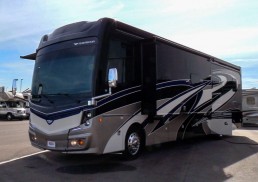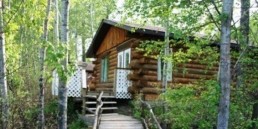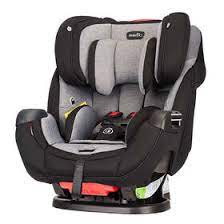Insuring an RV in BC
Insuring an RV in BC
Do your summer plans include some quality RV road-tripping? If so, there are some key pieces of information you will want to be aware of before you head out on the open road in BC this summer.That said, insuring your RV should be at the top of your list so that you are making sure you are following the proper rules for BC travel, as well as being protected from a wide range of potential issues that could occur while on the road.
Based on government rules in BC, recreational vehicles (RV), such as motorhomes, fifth wheels and travel trailers must be both registered and properly insured, if being used on roadways.
Having said that, there will be different levels as well as types of insurance coverage that will be most suitable for individual needs. Fortunately, this is where insurance agents come in. They can help you find the best coverage for your unique RV travel plans.

Types of Insurance Coverage
For example, some main types of insurance you will want to consider will include, liability insurance, in the event you may be found responsible for an accident that causes injury or damage to another individual or their property.
In the case of damage done to your RV by another party, such as vandalism, theft, etc, there is also insurance to cover these unwanted, yet, often unpreventable occurrences.
In the event, you or a loved one is also injured in an accident while travelling in your RV, l coverage also exists to help with expenses such as medical and rehabilitation costs.
Some further coverage may also be worth a major second thought. Such as having insurance in place for loss or damage to your personal belongings and contents. As well, you may want to look into coverage for replacement costs for the RV, itself as this can definitely provide some added peace of mind that you are being adequately protected.
Overall, it is definitely worth turning to an insurance agent to help advise you on these range of coverage options.
Best Possible Insurance Coverage
In addition to finding the most appropriate type of coverage, insurance agents can also provide support when it comes to identifying the right level of coverage, not to mention at the best price possible as well.
Depending on the type of recreational vehicle you are insuring, all of these elements will vary, as an RV, motorhome, and a travel trailer will all require different levels of coverage.
Furthermore, sometimes there is the option of choosing coverage that can be added onto your current insurance policy. Other times, it may be more suitable to obtain stand-alone coverage to satisfy your personal RV needs.
In the end, all of these decisions will play a very important role in your ability to enjoy your recreational travel time this summer.
For more information on the type of insurance coverage, contact Leaders Insurance. We are here to help you find the best policy for your needs, and can offer you our expert advice on all things related to insuring an RV in BC. After having the proper insurance in place, the BC roads and your summer adventures await!
Do you Need Special Insurance for a Cottage or Cabin?
Do you Need Special Insurance for a Cottage or Cabin?
If you own a cottage or a cabin, it is likely an important part of your life. While a cottage may serve a variety of purposes for you, whether it is a favourite family getaway spot or a year ‘round place of residence, there will definitely be one major consideration you will want to make. This being, having the right type of insurance coverage for your needs.Since insurance for recreational properties does differ from primary home insurance, it is important to look into your options for specialized insurance coverage that is geared towards cottage and cabin purposes.
When examining insurance options, the first step is to begin with deciding what your exact plans will be for your cottage moving forward, as this will help guide you in the right direction in terms of finding the type of insurance that will align best with these plans.

How Will You Use Your Cottage?
During this stage, you will want to identify how much time you will typically spend at your cottage. For example, will you occupy it all year round or will it be more of a seasonal spot only? In the end, each of these plans will factor into the type of insurance coverage you will need.
If your cottage is your secondary residence and you will be the only occupant, then it is possible for insurers to add this onto your primary home insurance policy. With that being said, not all coverage is created equally and there will be some exclusions. Therefore, it is best to look at the specifics of each policy and what will be covered.
What Coverage Will Meet Your Needs?
When it comes to separate cottage insurance policies, often referred to as recreational property insurance, there are several insurance packages worth considering. Additional coverage for seasonal properties that are only in use some of the time, can include: risk of damages to the property and structure, such as vandalism, fire and smoke damage, water damage, or any other such perils. Fortunately, also known as Peril Policies, these plans will take into account the unique cottage insurance needs you may encounter.
Liability insurance is also worth considering as this will help protect you in the event someone is injured on your property. This type of insurance also covered issues in relationship to situations when you are deemed responsible for causing damage to a neighbouring property or home.
Contents Coverage is another type of insurance to factor in, as there are likely items that you will leave at the property all year round. While any belongings, such as clothing or personal items that you take back and forth with you can be covered under primary home insurance, items remaining in the cottage will also require special insurance.
Lastly, if you store watercraft, such as canoes, sailboats, power boats, etc. at your cottage, some extra coverage will be needed as well to protect this valuable pieces of equipments.
Since you may have additional cottage or cabin insurance needs not listed here, then it is best to always contact a reputable insurance group to find out more about the specific insurance policies that are designed to help protect your property and your belongings.
Contact Leaders Insurance to learn more about the recreational property packages that we can put in place for you and how these special insurance policies can enable you to enjoy your time at your ‘home away from home’, however you choose to do so.
Why you Should Replace a Car Seat After a Car Accident
Why you Should Replace a Car Seat After a Car Accident
While car accidents are the last thing we want to happen, especially while driving with children in the vehicle, sometimes they are simply unavoidable. With that being said, it is essential that there are safety measures put in place to protect yourself and your loved ones from harm.One of the questions likely on the minds of many parents and drivers is whether or not a child’s car seat should be replaced following an accident. Many experts in this field will answer, yes to this question. The reality is that any damage to the car seat can further impact a child’s safety while they are occupying that seat. In the event, there is another accident, even a minor one, the car seat may not provide the level of protection it is meant to.

When Should You Replace a Car Seat?
There are a few different scenarios that can help you make the right call when it comes to replacing a child’s car seat and this begins with identifying the nature or severity of the collision.
Moderate to Severe Collisions
First of all, it is absolutely recommended that a child’s car or booster seat is replaced after a moderate to severe car accident. If you are unsure of whether or not a car accident falls under this category, you can consider facts such as whether the car’s functionality has at all been affected as this can signify a moderate crash.
In terms of a more severe crash, criteria for this relates more to any damage to the vehicle structure, that makes the car unsafe to drive. In these cases, it is definitely best to opt to replace the car seat. Even if during the time of the accident, a child was not in the car seat, it is still necessary to identify when a car seat should be replaced.
Minor Collisions
Secondly, it is also important to consider whether you should replace the car seat if you were involved in a minor collision. With a minor crash, the damage to your vehicle may be mostly unnoticeable, even invisible. However, a minor crash can be classified as one where air bags did not need to be deployed, and when the vehicle can be driven away afterwards without immediate safety concerns, such as damage to the drivers’s side door. Additionally, in the absence of injuries to any of the passengers, this points to a minor accident as well.
With a minor collision, it is likely that the car seat is safe enough to continue use, however, the car seat must first be inspected for zero signs of damage. All things considered, it is recommended that you consult the car seat’s manufacturing guide to find out what is advised for that specific type of car seat. The company will state one way or another whether the car seat needs to be replaced following a minor fender bender.
The principal that it is always better to be safe than sorry, is certainly a relevant one for this type of situation. That being said, replacing a car seat that was involved in any type collision is definitely worth serious consideration, and highly recommended in the case of a moderate to severe accident.
Car Seat Reimbursement
In the event, you have been involved in a car accident and plan to move forward with replacing your car seat, as a BC resident, fortunately you may be able to be reimbursed for some of the costs associated with this. To find out more about car seat replacement eligibility, it is suggested that you can do some additional research, as well as speak more with an expert in this area.
Insurance Coverage
In the end, having the right insurance is also extremely important. To learn more about the types of vehicle insurance coverage, contact Leaders Insurance. We are more than happy to help with any of your insurance needs, and above all, we want to provide you with the added peace of mind of feeling safe while driving with your precious loved ones along for the ride.
Preventing Accidents While Away From Home This Summer
Preventing Accidents While Away From Home This Summer
The summer is a wonderful time to explore different parts of the your region as well as venturing out a little bit further. Of course, you want to enjoy your time, and the last thing you want to worry about is experiencing accidents or injury.If you are planning a get away this summer, here are some tips to help prevent accidents while you spend some time away from home and enjoy the change of scenery.

Road Trip Safety
If you are travelling by car, in order to minimize the risk of having roadside accidents, the first step you can take is to plan ahead and keep safety at the forefront of your mind.
First of all, you will want to get your car ready for the road. Performing a vehicle maintenance check is an important step towards road trip safety.
Some steps included in your car safety check should include: checking and monitoring tire pressure, ensuring all fluids, such as transmission, steering, brake, motor oil, windshield wiper, and coolant levels are topped up. You will also want to include testing the battery and making sure you have a fully stocked emergency roadside kit.
Other key safe driving tips should include performing safe driving above all. Focusing on the road is an important part of safe driving practices, especially when you may be dealing with busy roads, that are congested with other motorists.
Whether or not you are driving alone or have family or friends in the vehicle, it is necessary that you reduce distractions. While it best to have your phone handy in case you do break down or have an accident, keeping your mobile device out of sight is fundamentally important and can greatly reduce your risk of being involved in a driving accident.
Campfire Safety
One of the ways you may also be planning to enjoy your summer is by going camping. Whether you are close to home or have travelling a bit further in mind, it is important to take the time to consider how you will keep yourself and your travel companions safe.
Before you even head out, it is recommended that you research the area you are going to be occupying. For example, knowing about the rules of the campgrounds, as well as the local fire danger ratings is important. There may even be fire bans in the area that you need to be aware of, and you can monitor these on the Canadian Wildland Fire Information System.
If you you are ok to proceed with having campfires in this region, then you will want to be up-to-date with campfire safety. Overall, it is necessary to learn about the best location and conditions for building a fire, such as a spot that is flat and bare and as far away from dry grass and of course a forested area as well as anything else that is combustible.
Before you even build your fire, you will need to have access to a water source, a bucket, or another extinguishing material. It is essential that you always keep a close eye on your campfire and ensure the fire is fully put out before leaving the area unattended.
Ultimately, you are the one responsible for your campfire, and to avoid accidents you should adequately review campfire safety as well as fire safety, in general with all individuals you are camping with.
In order to ensure everyone remains safe, the best course of action is to plan ahead for a range of potential incidences. With that being said, sometimes accidents do happen and you will want to be prepared for this as well.
Having the Right Insurance
While you can do everything in your power to avoid accidents this summer, it is still important to have the right insurance to help with a variety of situations that you may still encounter. Having both the best vehicle insurance, medical and travel insurance, as well as home insurance to keep your home safe while you are away, can make a world of difference.
Contact Leaders Insurance to learn more about our insurance policies and how we can contribute the helping you stay safe this summer.
